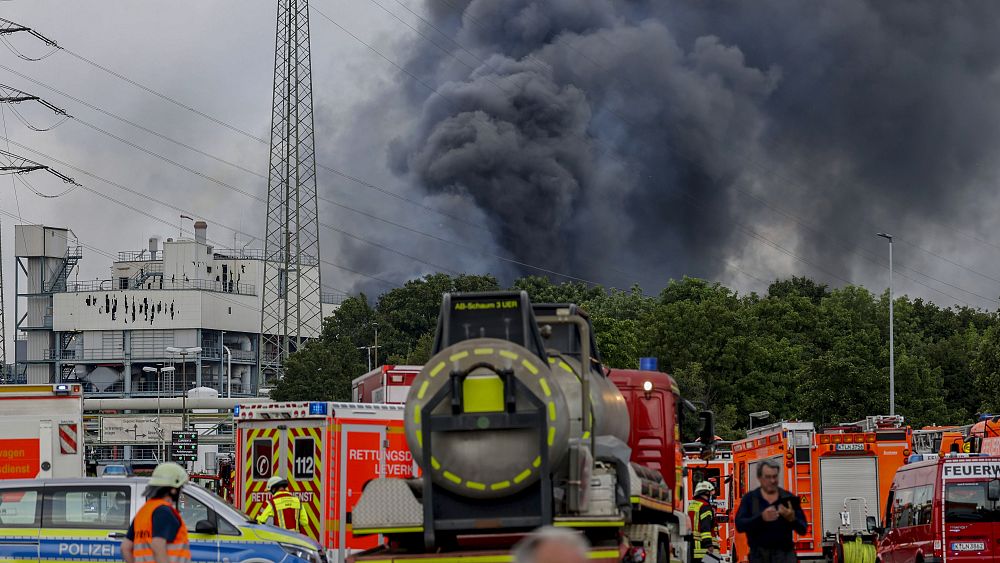
A deadly explosion at a waste treatment plant in Germany was probably caused by a chemical reaction, a provisional report has found.
Seven people were killed in the blast in the Chempark industrial area of Leverkusen on 27 July, and a further 31 people were injured. All the victims worked at the chemical site.
Storage tanks containing chlorinated solvents caught fire in the waste processing centre of the Currenta company, sending a huge plume of black smoke into the air.
A “significant” amount of particles were then released into the surrounding area after the blast.
An initial probe into the incident was presented by local officials at the Cologne district government on Monday.
The report found that a chemical reaction “probably” caused the spent liquid in a waste storage tank to self-heat rapidly, resulting in an increase in pressure that the tank could not withstand.
“The whole process took place so quickly that the safety mechanisms were no longer able to dissipate the pressure,” the report added. “When the pressure exceeded the design pressure of the tank, it exploded”.
Currenta said in a statement that the initial findings were consistent with its own investigations.
The Cologne district government said it was awaiting further expert analysis before it could draw definitive conclusions about the cause of the explosion.
The public prosecutor’s office and the Cologne police have also opened an investigation into “suspected negligence leading to the explosion and manslaughter”.